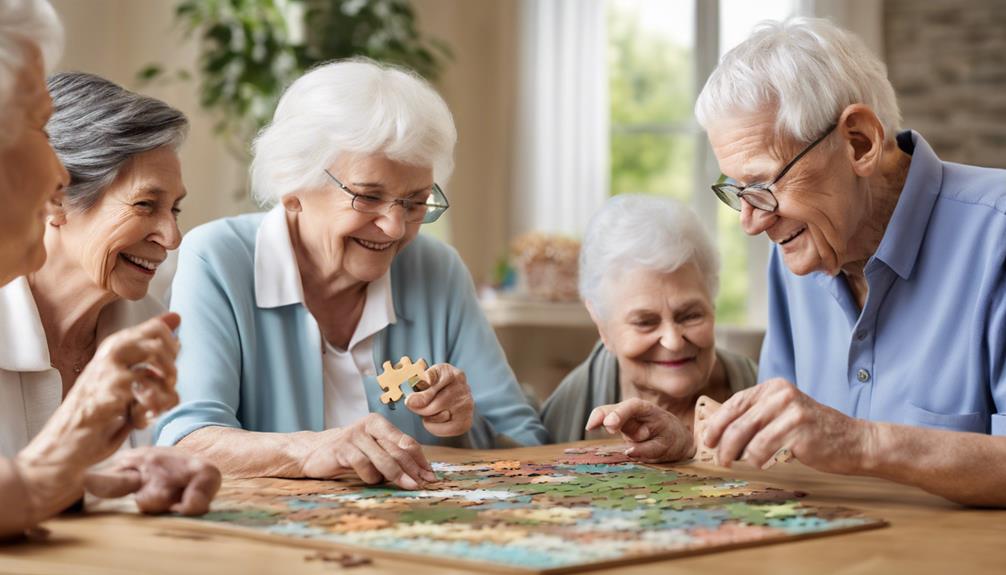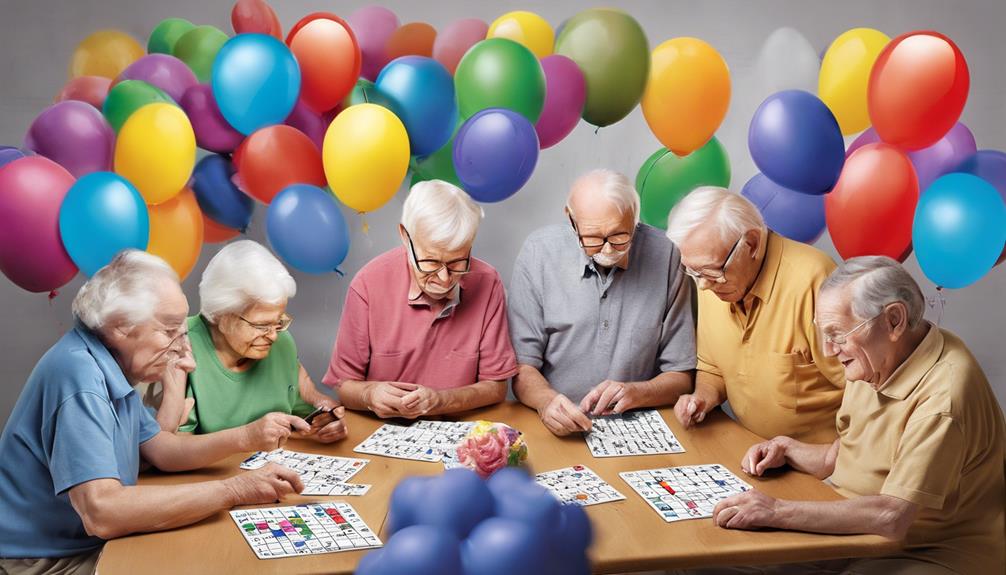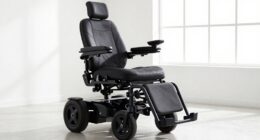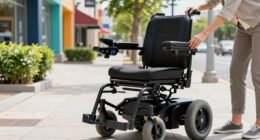Have you ever wondered if those occasional lapses in memory are just a natural part of getting older or a possible indication of something more serious?
The distinction between forgetfulness and signs of dementia can be subtle yet crucial. Understanding what to look for and when to seek help is essential for ensuring the well-being of older adults.
By shedding light on these misconceptions and providing clarity on identifying early signs of dementia, we can empower ourselves and our loved ones to navigate this aspect of aging with knowledge and preparedness.
Key Takeaways
- Occasional memory lapses in seniors are not always signs of dementia.
- Early signs of dementia include memory loss impacting daily activities.
- Lifestyle choices and genetics influence dementia development.
- Brain-stimulating activities and social engagement are beneficial for dementia management.
Understanding Senior Moments Vs. Dementia Symptoms
When differentiating between senior moments and dementia symptoms, it's essential to recognize the subtle yet crucial distinctions in memory lapses and cognitive changes experienced by older adults. Senior moments typically involve occasional memory lapses like forgetting names, misplacing items, or struggling to recall recent events. These are common and often benign occurrences in older adults.
On the other hand, dementia symptoms represent a more serious concern, characterized by persistent and progressive memory issues that significantly affect daily life. Signs of dementia include struggling with familiar tasks, confusion about time and place, and changes in judgment and behavior. Unlike senior moments, dementia symptoms worsen over time, impacting various cognitive functions.
Proper identification of these signs is vital in distinguishing between normal age-related memory lapses and potential dementia. Understanding these distinctions is crucial for early intervention and appropriate care for older adults experiencing cognitive decline. By being aware of these differences, we can better support and serve those facing memory challenges.
Debunking Common Myths About Memory Loss

Understanding the nuances of memory loss in older adults is crucial in dispelling misconceptions and myths surrounding cognitive decline. It's important to recognize that not all memory loss indicates dementia. Conditions like depression can also lead to memory issues, highlighting the need for a comprehensive evaluation.
While Alzheimer's is the most common form of dementia, there are various other types, emphasizing the diversity within this category of conditions. Memory loss is just one aspect of dementia, with cognitive and behavioral changes also playing significant roles.
Sometimes, memory complaints may stem from normal aging processes or stress rather than dementia. It's essential to consider observations from family members, especially spouses, who may notice memory problems that warrant further evaluation for potential dementia.
Recognizing Early Signs of Dementia
In recognizing early signs of dementia, we must pay attention to subtle changes in memory, behavior, and cognition that may signal the onset of this condition. Memory loss, especially when it interferes with daily activities like forgetting important dates or recent information, can be a red flag for dementia.
Additionally, difficulties in planning or problem-solving, such as struggling with tasks like following a recipe or managing finances, could indicate cognitive decline associated with dementia. Confusion about time or place, like getting lost in familiar surroundings, is another warning sign to watch for.
Language problems, such as trouble finding words or following conversations, may also be early symptoms of dementia. Furthermore, mood changes, personality shifts, or withdrawing from social activities without explanation can be indicative of underlying dementia.
Being vigilant and recognizing these early signs can lead to timely intervention and support for individuals experiencing these symptoms.
Factors Influencing Dementia Development

As we explore the factors influencing dementia development, it becomes evident that genetics may contribute to certain forms of dementia, yet the majority of cases aren't directly inherited. While genetic links exist, lifestyle choices play a significant role in brain health and reducing the risk of dementia.
- Healthy Diet: Consuming a diet rich in fruits, vegetables, whole grains, and lean proteins can support brain health and reduce the risk of cognitive decline.
- Regular Exercise: Engaging in physical activity not only benefits the body but also the brain. Exercise helps improve blood flow to the brain and promotes the growth of new brain cells, reducing the risk of dementia.
- Cognitive Stimulation: Keeping the brain active through activities like reading, puzzles, or learning new skills can help maintain cognitive function and potentially lower the risk of developing dementia.
Promising Approaches to Dementia Management
Regularly engaging in activities that stimulate the brain and promote social interaction can play a crucial role in managing dementia symptoms and improving overall cognitive function. For people living with Alzheimer's disease or other types of dementia, focusing on enhancing quality of life is paramount. Engaging in physical exercise, brain-stimulating activities like puzzles and learning new skills, and maintaining social connections are all promising approaches to dementia management. Additionally, a diet rich in antioxidants and omega-3 fatty acids can support brain health and potentially reduce the risk of developing dementia. Structured cognitive training programs have shown positive results in improving mild memory issues and overall cognitive function in individuals with dementia. These interventions not only aim to manage symptoms but also to enhance the quality of life for those affected by dementia.
| Promising Approaches to Dementia Management | |
|---|---|
| Regular Physical Exercise | Brain-Stimulating Activities |
| Social Engagement | Healthy Diet |
Frequently Asked Questions
Is My Senior Moment the Start of Dementia?
We understand the concern when a senior moment makes you wonder about dementia. It's essential to address memory changes promptly. Consulting a healthcare professional can provide clarity and support.
These moments could be due to various factors, not just dementia. Early evaluation ensures appropriate care and peace of mind. Remember, seeking help shows strength and commitment to your well-being.
Let's navigate this together for your health and peace of mind.
When Do Senior Moments Start?
Senior moments can begin as early as one's 30s, becoming more common with age. These memory lapses are often minor but can include forgetfulness about recent events, names, or item locations.
The frequency and impact of senior moments vary between individuals. It's important to distinguish between normal age-related memory changes and signs of dementia. Understanding this difference helps in managing memory challenges and seeking appropriate support if needed.
Are You Having a Senior Moment?
Yes, we might be having a senior moment. It happens to many of us, causing brief memory lapses or cognitive glitches. Misplacing keys or forgetting names are common occurrences.
While these slips can be part of normal aging, persistent issues affecting daily life might signal more serious conditions like dementia. Understanding the differences between benign forgetfulness and cognitive decline is essential for appropriate care and support.
What Is a Synonym for Senior Moment?
When we talk about a senior moment, we're referring to a temporary lapse in memory often experienced by older adults. It's like a brief forgetfulness, such as forgetting names or misplacing things.
These moments are usually mild and don't greatly affect daily life. However, if memory problems persist or worsen, it could be a sign of a more serious condition like dementia.
Conclusion
As we navigate the winding road of aging, let's remember that our minds are like delicate gardens, requiring nurturing and care.
While senior moments may flutter in and out like fleeting butterflies, the shadows of dementia linger with a weight that can't be ignored.
Let's water the seeds of our cognitive health with awareness and action, so that we may bloom brightly in the garden of our golden years.









